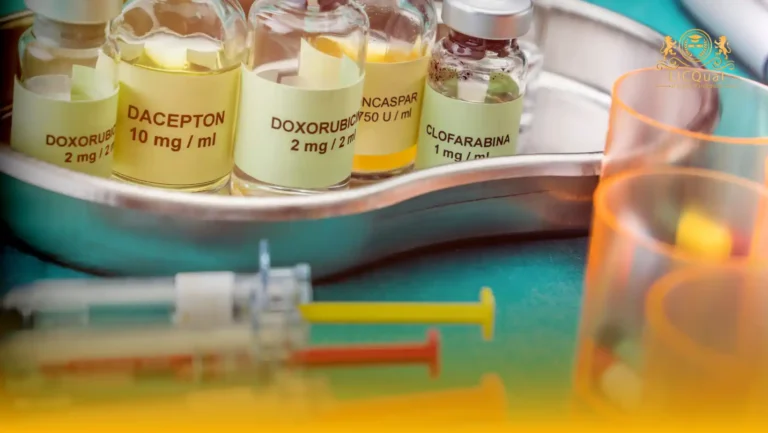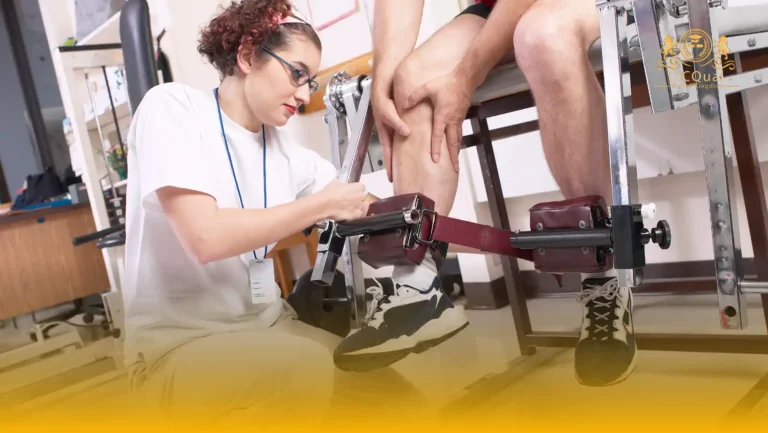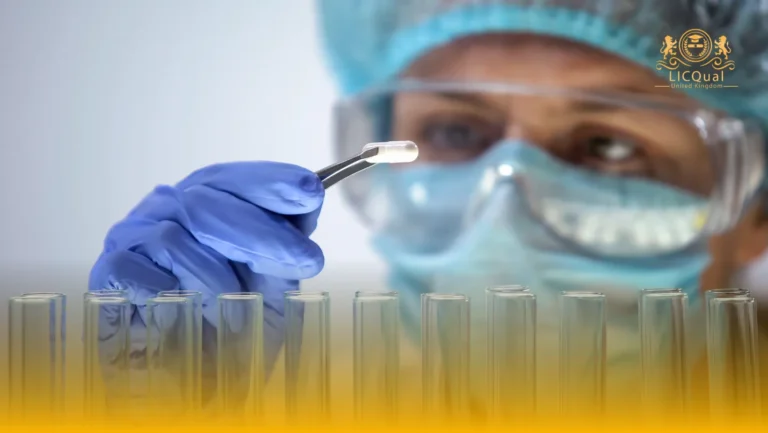Advance your career in the piping industry with the LICQual Level 3 Diploma in QC Piping Inspector, a globally recognized qualification designed to transform you into a skilled quality control (QC) professional. This comprehensive diploma is ideal for both newcomers and experienced individuals looking to specialize in piping inspection within high-demand sectors like oil and gas, petrochemicals, and construction.
With a focus on practical, industry-relevant skills, this course equips you to perform thorough inspections, identify defects, and ensure piping systems meet stringent safety and quality standards.
This engaging program delivers clear, accessible modules led by industry experts, blending theoretical knowledge with hands-on applications. You’ll master essential QC techniques, from interpreting piping drawings to conducting welding inspections and ensuring compliance with international standards. With flexible learning options—online, in-person, or blended—the LICQual Level 3 Diploma is tailored to fit your schedule, making it perfect for busy professionals and aspiring inspectors. Start your journey now to become a confident QC piping inspector and make a significant impact in the piping industry.
The LICQual Level 3 Diploma in QC Piping Inspector offers a robust curriculum to develop your expertise in quality control inspection for piping systems, preparing you for critical roles in industries such as energy, infrastructure, and manufacturing. This program covers key topics, including piping system fundamentals, material selection, welding processes, visual and non-destructive testing (NDT) techniques, isometric drawing interpretation, and health, safety, and environmental practices. Through practical exercises, case studies, and real-world simulations, you’ll gain the skills to ensure piping systems meet global standards like ASME, API, and ISO, while addressing defects and ensuring project compliance.
Designed for flexibility, this diploma caters to learners at various stages, with online and blended learning formats to accommodate busy schedules. Whether you’re entering the piping industry or seeking to advance your career as a QC inspector, this course provides a solid foundation for success. Upon completion, you’ll earn a globally respected LICQual Level 3 Diploma, validating your ability to deliver high-quality inspections and boosting your career prospects. Join this industry-leading program to become a trusted QC piping inspector and excel in a competitive, fast-growing field.
Course Overview
Qualification Title
LICQual Level 3 Diploma in QC Piping Inspector
Total Units
6
Total Credits
60
GLH
240
Qualification #
LICQ2200544
Qualification Specification
To enroll in the LICQual Level 3 Diploma in QC Piping Inspector applicants must meet the following criteria:
|
Qualification# |
Unit Title |
Credits |
GLH |
|---|---|---|---|
|
LICQ2200544-1 |
Piping Codes and Standards (ASME, API, ANSI, ISO) |
10 |
40 |
|
LICQ2200544-2 |
Welding Inspection and NDT Fundamentals |
10 |
40 |
|
LICQ2200544-3 |
Piping Fabrication, Erection, and Installation Monitoring |
10 |
40 |
|
LICQ2200544-4 |
Dimensional Inspection, Tolerances, and Alignment Checks |
10 |
40 |
|
LICQ2200544-5 |
Inspection Documentation, Reporting, and Quality Records |
10 |
40 |
|
LICQ2200544-6 |
Practical Applications in QC Piping Inspection |
10 |
20 |
By the end of this course, applicants will be able to:
1. Piping Codes and Standards (ASME, API, ANSI, ISO)
- Interpret and apply international piping codes and standards, such as ASME B31.3, API 1104, ANSI, and ISO, to ensure compliance in piping inspections.
- Identify the specific requirements of each standard and their relevance to different piping applications and industries.
- Evaluate piping systems against applicable codes to verify safety, quality, and regulatory adherence during inspections.
- Develop inspection checklists based on piping codes and standards to support consistent quality control processes.
2. Welding Inspection and NDT Fundamentals
- Conduct welding inspections to identify defects, such as cracks, porosity, or incomplete fusion, ensuring compliance with quality standards.
- Explain the principles and applications of basic non-destructive testing (NDT) methods, including ultrasonic, radiographic, and magnetic particle testing, for piping systems.
- Interpret NDT results to assess weld integrity and recommend corrective actions to maintain piping quality.
- Apply safe and effective welding inspection and NDT techniques in accordance with industry best practices and project specifications.
3. Piping Fabrication, Erection, and Installation Monitoring
- Monitor piping fabrication, erection, and installation processes to ensure adherence to design specifications and quality standards.
- Identify and address non-conformities, such as improper assembly or material defects, during piping fabrication and installation.
- Verify the correct execution of erection and installation procedures to ensure structural integrity and operational reliability.
- Collaborate with project teams to integrate quality control measures into all stages of piping fabrication and installation.
4. Dimensional Inspection, Tolerances, and Alignment Checks
- Perform dimensional inspections of piping components to verify compliance with design drawings and tolerances.
- Utilize precision tools, such as calipers and laser alignment devices, to conduct accurate alignment checks and dimensional measurements.
- Assess piping system alignments to ensure proper fit-up and functionality, addressing any deviations from specified tolerances.
- Document dimensional inspection findings to support quality control and ensure traceability in piping projects.
5. Inspection Documentation, Reporting, and Quality Records
- Prepare accurate and detailed inspection reports, documenting findings, non-conformities, and corrective actions for piping systems.
- Maintain comprehensive quality records, including material certifications, test results, and inspection logs, to ensure traceability and compliance.
- Utilize digital tools to streamline documentation and reporting processes, enhancing efficiency in quality control workflows.
- Communicate inspection outcomes effectively to project stakeholders, ensuring clarity and alignment with project requirements.
6. Practical Applications in QC Piping Inspection
- Apply QC inspection techniques in real-world or simulated piping projects to identify and resolve quality issues effectively.
- Analyze practical case studies to develop problem-solving skills for common piping inspection challenges, such as defect identification and compliance failures.
- Conduct hands-on inspections using industry-standard tools and methods to ensure piping systems meet quality and safety standards.
- Demonstrate the ability to integrate inspection principles, documentation, and reporting into practical QC processes for piping projects.
This course is designed for:
- Aspiring QC Inspectors and Technicians
Individuals seeking to enter or grow in the field of piping quality inspection and industrial quality assurance. - Mechanical and Piping Technicians
Technicians working in piping fabrication, welding, or erection roles who want to transition into quality control positions. - Engineering Diploma or Degree Holders
Graduates in mechanical, industrial, or petroleum engineering looking to gain practical QA/QC certification. - Welders and Fabricators
Skilled tradespeople aiming to move into supervisory or inspection-based roles with enhanced responsibilities. - Site Supervisors and Project Coordinators
Professionals responsible for overseeing piping activities and ensuring quality compliance on industrial projects. - NDT Assistants and Junior Inspectors
Individuals involved in non-destructive testing or basic inspection who want to expand their skill set and qualifications. - Quality Control Assistants
Entry-level QA/QC staff looking to formalize their knowledge and progress to higher-level inspector roles. - Contractors and Subcontractors
Personnel delivering piping services who need to meet client and international quality assurance requirements. - HSE and QA Personnel
Health, Safety, and Quality officers wanting to better understand piping QA/QC for integrated project quality management. - Job Seekers Targeting International Opportunities
Individuals aiming to work on global infrastructure or oil & gas projects where recognized piping QA/QC qualifications are essential.
Assessment and Verification
All units within this qualification are subject to internal assessment by the approved centre and external verification by LICQual. The qualification follows a criterion-referenced assessment approach, ensuring that learners meet all specified learning outcomes.
To achieve a ‘Pass’ in any unit, learners must provide valid, sufficient, and authentic evidence demonstrating their attainment of all learning outcomes and compliance with the prescribed assessment criteria. The Assessor is responsible for evaluating the evidence and determining whether the learner has successfully met the required standards.
Assessors must maintain a clear and comprehensive audit trail, documenting the basis for their assessment decisions to ensure transparency, consistency, and compliance with quality assurance requirements.







